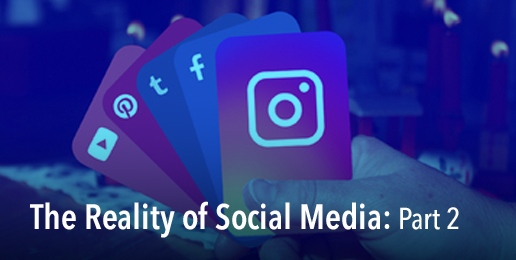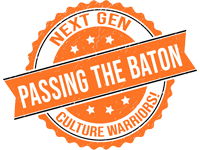
Even though social media isn’t yet 50 years old, warnings against it have become a bipartisan concern.

But, it’s also a huge part of our world used by many people to connect and businesses to engage with their clientele. For parents especially it can be stressful to figure out how to monitor their children’s use of social media, and let’s face it, it can even be difficult for adults. That’s why we are working on a series of articles about social media. Starting with a general overview, and then going more in-depth on popular apps.
The first social media app we’re going to explore is Instagram. This app is incredibly popular, particularly among millennials, although Gen Z makes up a large portion of users as well. Instagram is a photo and video (the videos are known as reels) platform owned by Meta – the same company that owns and operates Facebook. Instagram lets you photo or video journal your life.
Most of the information in this article comes from my personal use of Instagram, as I use the app daily. So, for parents who are unsure about whether to let their children use Instagram or for those who just want to learn more about it, feel free to follow along as we dive into the details of the platform.
How it Works:

Instagram is designed so that when you open up the app it takes you to your feed, also known as your home page.
Normally this page only shows posts from accounts you, as a user, follow. However, Instagram sometimes puts ads, sponsored posts, or suggested posts (posts from other accounts that Instagram thinks you will like) into your feed. There is no way to permanently turn these features off, but you can snooze suggested posts for 30 days at a time.
Your home page will also show stories, which are pictures or videos posted by accounts you follow that last for 24 hours and then disappear unless you save them to your profile in a highlight.
The search and reels features allow you to see random algorithm-compiled photos and videos from accounts all across Instagram, not just people you follow. These tend to get compiled based on what gets a lot of likes/views by all Instagram users, as well as things related to what you and the people you follow click on and view. The search feature also lets you search for accounts, topics, and hashtags all across Instagram.

Your profile is your page on Instagram. It shows what you’ve posted, your bio, your followers, who follows you, any stories you’ve highlighted, and links you’re promoting.
You can choose to make your account public or private. If your account is private, you have control over who follows you, and only followers can see your profile. If your account is public, anyone can follow you, and everyone who clicks on your profile can see your posts. There is an option to remove followers and/or block people, and both require you to go into the other person’s account and click on the three dots in the upper right-hand corner.
You’ll still get sponsored and suggested posts even if your account is private.
Instagram allows you to turn your account into a business or personal account. A business account gives you different features such as ad placements, branded content, monetization, (whether or not your account can make money), visual statistics, etc. You can also pay to have your account verified, or have a blue checkmark, which just basically means you are an official account – you’ve been verified by Meta.

Instagram has a Direct Message (DM) feature through which you can message people, regardless of whether you follow them or not. In the same way, anyone (follower or not) can DM you, even if your account is private. Generally, spam and messages from people you don’t know/don’t follow go into the requests folder where you can decide whether you want to allow the message.
The notes feature allows you to post a short looping video or message or play a song. People can respond to your note by clicking on it.
Pros/Cons of Instagram PLUS Safety Concerns:
From my observations as a member of Generation Z, most of my peers use TikTok to watch videos and stay up-to-date on trends but use Instagram to connect, hang out, and tell people about our lives. We also use it to keep in contact with current friends, find people we haven’t seen in years, and occasionally make new friends. I’ve found people I was best friends with in kindergarten on it!
We also use Instagram to keep people updated about what is going on in our lives. I used Instagram to tell everyone I was attending college because it’s an easy way to make sure everyone hears the news (also I may have forgotten to tell a lot of people in person). Through Instagram we stay up-to-date on news, what is happening within our interests (bookbinding, fandoms, movies, sports, fashion, celebrities, etc.), and start small entrepreneurship/business ventures.
If I had a dime for everyone I know who has more than one account for things like podcasting, influencing, YouTube channels, selling crafts, etc., I could buy a car. I have three accounts myself! Instagram is very beneficial to business, as long as you put effort into it. It can be a very useful tool, and sometimes those without it can feel disconnected and left out if a lot of the people around them use it.
However, Instagram can also be very dangerous. Because of the way it allows you to watch others’ lives and journal your life for the world to follow and see, Instagram allows comparison, fear of missing out, and poor body image to thrive. It has been blamed for contributing to mental health issues, such as anxiety, depression, eating disorders, and self-harm among teens because of the way it impacts our brains and allows users to compare themselves with the picture-perfect presentation of others’ lives.
One area of concern is Instagram’s search and reels features.
These compile content from users all across the app. Through them, you’re able to interact with virtually anyone in the world, and social media tends to bring out the worst in people. The comment sections of many of these posts are just vulgar, including the frequent use of foul language. There is also the danger of inappropriate photos or videos showing up (such as soft porn or eating disorder/self-harm content).
That said, Instagram tends to track who you follow and what you click on, so if you avoid watching/clicking on inappropriate posts, the chance of stumbling across something regrettable goes down.
Another concern is that because you can DM anybody and anybody can DM you, there is the danger of being contacted by creeps. Messages from people you don’t know go into the message requests folder where you can read and decide whether or not to keep them without the sender knowing. You can go into settings and change things around so that you don’t get message requests from people you don’t know, but in general, you’re likely to occasionally get some weird message requests.
Spam is also common – I probably get at least one message a month asking me to collaborate with what I am pretty sure is a fake company.
A Few Helpful Things To Know:
- Instagram lets you buy some products directly in the app, which requires you to enter your payment information.
- There is a variety of “controls” you can change in settings – such as blocking words you don’t want to see or setting a time for them to remind you to get off the app. They’re not well advertised, and I don’t know how well they work, as I haven’t used them.
- Most of your important account information – passwords, personal details, payments, etc., are now held in Meta Center, which contains information for all Meta-owned social media.
- The app also tracks what you do off of the apps. You can disable this, but that information is buried in your account center.
- You can have control over whether or not Instagram has access to the camera, microphones, contacts, location tracking, notifications, and photos, as well.
- Instagram is run by Meta – the same group that owns and operates Facebook. CEO Mark Zuckerberg and many others who lead Meta aren’t Christians and hold a worldview that lands solidly on the liberal side of the line. As such, conservative content is often censored, hidden, or fact-checked, and liberal content is boosted and sponsored.
Harmful…. On Purpose?
In 2021, Frances Haugen, a whistleblower who had formerly worked for Facebook, leaked documents showing the company knew there were some serious problems with their platforms and yet swept the research under the rug and continued without making any changes. At this time, Instagram and Facebook were owned by Facebook, Inc., which was what the company was called before they changed the name to Meta.
These leaks are known collectively as the “Facebook Files” or “Facebook Papers,” and they document some incredibly disturbing information about Facebook and Instagram, such as how the company had statistics showing just how toxic Instagram is to teenagers, especially teen girls, but kept trying to get younger and younger kids on the app. Or how Facebook responded weakly to alerts that traffickers in the Middle East used the site to find and lure women.
The Wall Street Journal did a thorough report on this. Although I don’t think you’ll find much of the information surprising, it does make a lot of sense. The leaks resulted in several lawsuits against Facebook, Inc.
A Couple of Final Thoughts:
Instagram, like the other social media apps we’ll cover, is designed to keep its users scrolling. It’s addictive (I know from experience – ha!) and is designed to manipulate your brain through intermittent variable rewards. Instagram has very few stopping cues (things to encourage you to take a break and do something else) and the app rewards you for spending more time on it.
If you decide to allow your child to download Instagram, or you decide to download it yourself, make sure you keep these things in mind and strictly limit the amount of time you or they spend on it.
Instagram can be a useful tool to connect and keep up with friends or grow your business, but in the wrong hands and without limits, it can also be incredibly destructive.






















